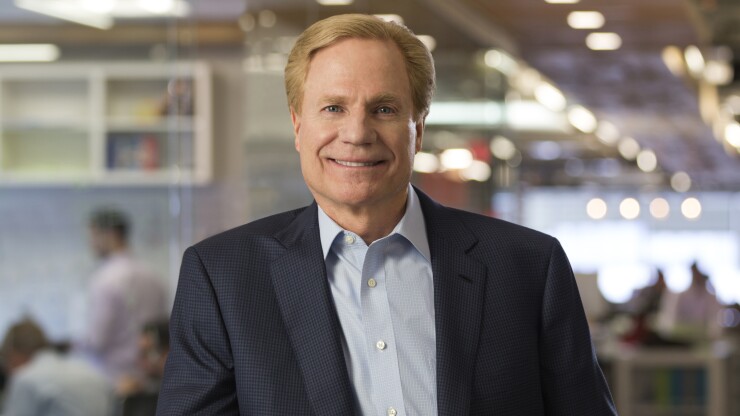Capital One Financial reported a 10% jump in profits in the second quarter thanks to revenue growth across a range of consumer and commercial lending businesses.
The McLean, Va., company earned $1.04 billion in net income, or $1.94 per share. That result outpaced the $1.90 per share consensus estimate of analysts surveyed by FactSet Research Systems.
In Capital One’s flagship credit card business, total net revenue climbed by 7% from the second quarter of last year to $4.17 billion.
In the consumer banking unit, which includes mortgages and auto loans, total net revenue rose by 9.1% to $1.76 billion.

And in the company’s commercial banking unit, total net revenue increased by 9.3% to $752 million.
Each of those units reported that period-end loans held for investment were higher than they were at the second quarter of 2016. Meanwhile, Capital One’s net interest margin, which measures the spread between the rate at which the bank borrows and the rate at which it lends, rose by 15 basis points to 6.88%.
“We delivered another quarter of resilient growth across our business,” CEO Richard Fairbank said in a press release.
Capital One has a substantial presence in the markets for subprime credit cards and subprime auto loans, and its credit performance is being closely watched amid concerns about loan quality in those two industries.
In the company’s U.S. credit card business, 3.63% of loans were at least 30 days past due during the second quarter, which was up from 3.14% a year earlier.
In Capital One’s auto lending business, 5.40% of loans were at least 30 days late, which was down slightly from 5.59% in the second quarter of last year.
As of June 30, 35% of the loans in Capital One’s domestic card portfolio were to borrowers with credit scores of 660 or lower. In its auto lending portfolio, 49% of borrowers were in the same credit score range.
Capital One’s provision for credit losses was $1.8 billion in the second quarter, up 13% from the same period a year earlier.
The company also said that during the quarter, it incurred $12 million in costs related to its pending acquisition of credit card assets from Cabela’s, the outdoor apparel store. That deal, which also involves Synovus Financial, is subject to regulatory approval.





